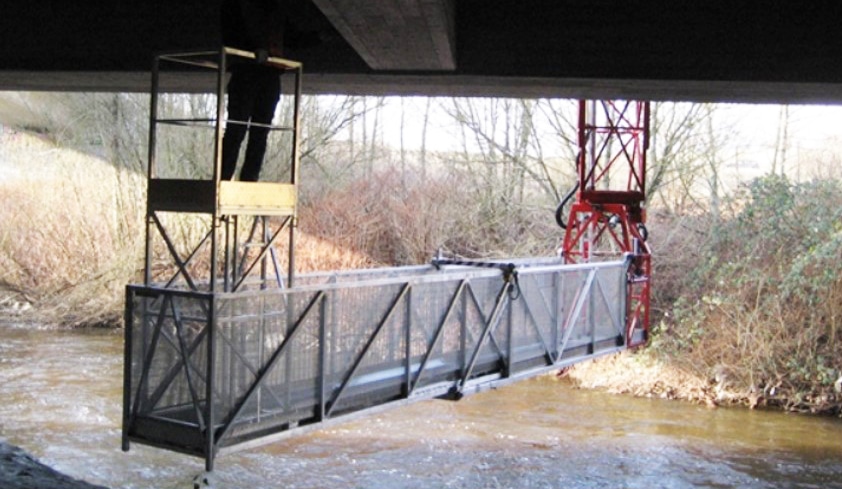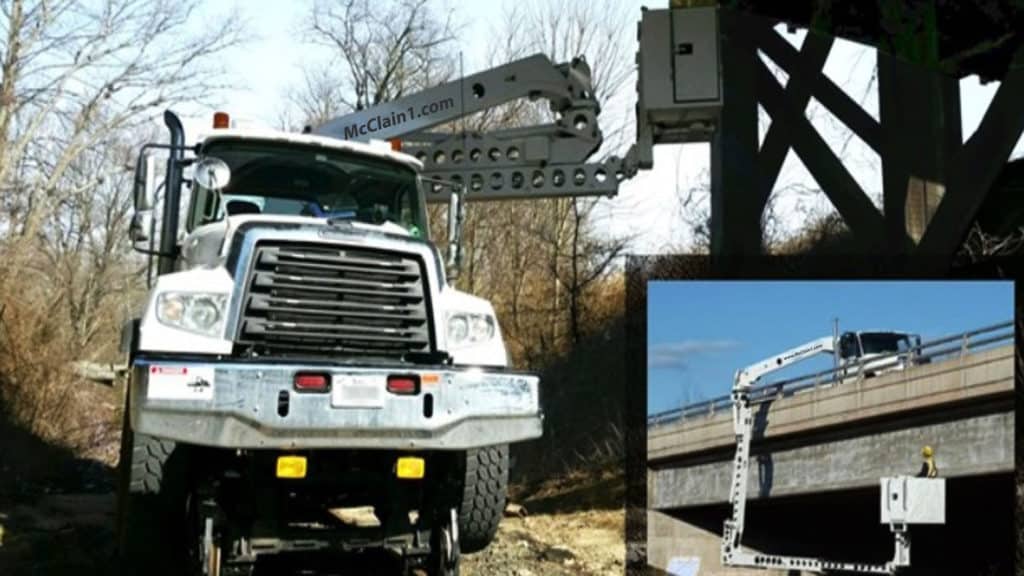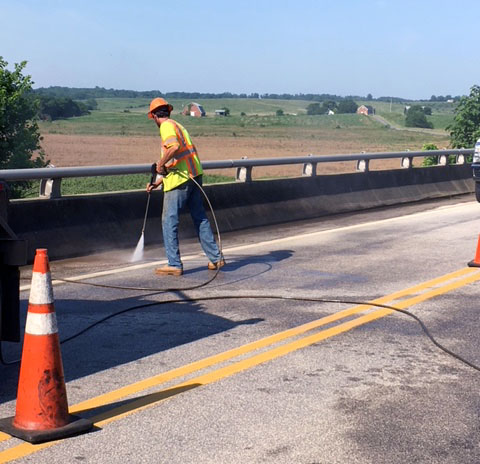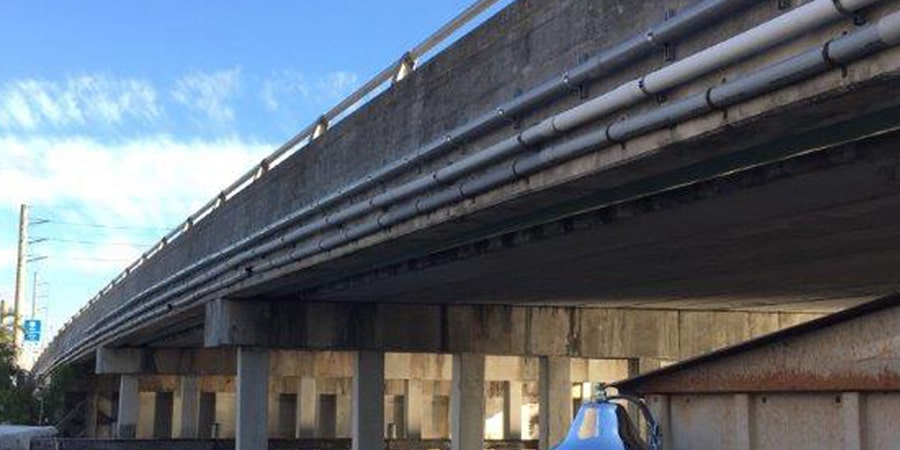Every day, countless Americans traverse highway and other roadway bridges without much consideration—perhaps only noticing the tolls on certain spans. However, when a highway bridge faces a significant repair issue or worse, drivers suddenly become acutely aware of bridge safety.
This awareness underscores the importance of regular routine inspections. These maintenance checks for highway bridges offer several advantages to everyone involved.

The Significance of Routine Maintenance Inspections
Preventive maintenance tasks are generally more cost-effective than major repairs, and regular bridge inspections enable engineers to identify minor structural issues early on, allowing for timely corrections before they escalate into costly, high-risk problems.
Furthermore, the data collected during these inspections plays a crucial role in shaping future repair, maintenance, and construction planning and budgeting. By performing regular inspections, we can effectively maintain our highway bridges, ensuring they remain in good condition for safe and reliable transportation.
Additionally, federally mandated inspections, conducted at least every 24 months on public highway bridges, are vital for safeguarding the nation’s transportation infrastructure. Moreover, the use of inspection access equipment and tools is essential for verifying that all equipment operates safely and efficiently, as routine checks can reveal potential issues before they develop into serious concerns.
The Benefits of Routine Bridge Inspections
Conducting routine maintenance inspections on highway bridges offers numerous advantages. Foremost among these is the enhancement of public safety; by identifying potential issues early, inspectors can address them before they escalate into major problems that could lead to accidents or expensive repairs. These inspections also ensure that bridges operate safely and efficiently, ultimately saving time and money over the long term.
Additionally, routine inspections contribute to extending the lifespan of highway bridges. Timely repairs not only prolong a bridge’s durability but also help government agencies and taxpayers avoid significant costs associated with major repairs or replacements. Moreover, regular inspections allow bridge inspectors to gain valuable insights into the condition of bridges and their responses to various environmental factors.
This information can be analyzed to formulate more effective maintenance plans and strategies, ensuring the long-term viability of our infrastructure. Overall, routine maintenance inspections are crucial for maintaining the safety of our roadways, extending bridge lifespans, and proactively identifying potential issues before they develop into serious concerns.

Highway Bridges – The Critical Links in America’s Transportation Infrastructure
It’s no secret to anyone who drives for a living or depends on the trucking industry that bridges are vital. Highway bridges in the U.S. are essential components of our transportation infrastructure, connecting cities and regions while ensuring safe and efficient passage for both vehicles and pedestrians. They facilitate the reliable transport of goods and materials crucial to our economy; in fact, if the trucking industry were to come to a halt, the U.S. economy would quickly follow suit.
However, like all infrastructure, bridges face wear and tear, which can lead to structural deficiencies and safety hazards. That’s why conducting routine maintenance inspections is critical for identifying potential issues and ensuring the safety of the traveling public. Bridge inspections play a vital role in this maintenance process, aimed at detecting problems such as structural deficiencies, corrosion, and damage from environmental factors like storms, earthquakes, and heavy traffic. By spotting these issues early, inspectors can address them before they escalate into serious problems that could result in accidents or costly repairs.
Effective Routine Maintenance Inspections Require Safe and Reliable Access Equipment
Equipment inspections are a crucial component of bridge maintenance. Regular checks on the tools used for bridge upkeep, such as under-bridge access vehicles, bucket lifts, and other specialized equipment, are essential to ensure they are in good working condition and free from defects that could result in accidents or equipment failure.
Rental companies, engineering firms, and state DOTs that own this equipment should perform inspections regularly. These checks can uncover potential issues like fluid leaks, worn or broken parts, and other performance or structural concerns that may require maintenance or replacement. Furthermore, consistent inspections help ensure that the equipment operates efficiently, ultimately saving both time and money in the long run.
Railway Bridges Also Require Routine Maintenance Inspections
Railroad bridge inspections are vital for ensuring the safe and reliable transportation of goods and people across the country. Hi-rail rentals play an essential role in these inspections, providing a safe and efficient means to assess bridge conditions.
Hi-rail trucks are specialized vehicles designed for inspecting railway bridges, equipped with attachments that enable them to travel along railroad tracks. These trucks offer access to hard-to-reach areas of bridges, including undersides and overhead trusses, making them indispensable for inspectors.
Just like highway bridges, railroad bridges are integral to the nation’s railway systems and require regular inspections to detect signs of wear, damage, or structural weaknesses that could jeopardize safety. The significance of these inspections cannot be overstated.
Most railroad bridges face harsh weather conditions—such as heavy rain, snow, high winds, and extreme temperatures—that contribute to wear over time. Additionally, the heavy traffic loads and constant vibrations from passing trains exacerbate any existing issues. Regular inspections are essential for identifying potential problems before they escalate into major repair needs or safety hazards.
Moreover, these inspections are mandated by federal regulations, specifically the Federal Railroad Administration (FRA), which requires railroad companies to inspect their bridges at least once a year. Noncompliance can lead to significant fines and legal repercussions, especially in the event of an accident related to a bridge’s condition.

Hi-Rail Rentals and Railroad Bridge Inspections
Railroad bridge inspections are carried out by trained professionals using specialized equipment, such as hi-rail vehicles and bucket trucks, to detect any defects or weaknesses in the bridge structure. Similar to highway bridge inspections, they may also employ UAVs or drones, specialized cameras, and non-destructive testing methods to identify issues without damaging the bridge.
Inspectors routinely look for signs of corrosion, rust, deformation, cracking, and other structural concerns that could jeopardize the bridge’s safety. Just like highway bridge inspections, these regular evaluations are crucial for maintaining public confidence in the safety and reliability of the railroad system. Recent freight train derailments highlight the perception issues that can arise from bridge failures.
By ensuring their bridges are well-maintained and free of safety hazards, railroad companies can showcase their commitment to passenger and freight safety, thereby reinforcing public trust in the rail industry.
Ultimately, the importance of railroad bridge inspections cannot be overstated. Regular inspections are essential not only for identifying potential safety risks but also for ensuring compliance with federal regulations. Moreover, these inspections play a critical role in sustaining public confidence in the safety and reliability of the railroad system.
McClain & Co., Inc.: Your Top Choice for Highway Bridge Inspection and Hi-Rail Rentals.
At McClain & Co., Inc., we strive to provide the finest bridge inspection equipment and hi-rail trucks, along with exceptional customer service. Our extensive inventory includes a diverse range of utility and aerial equipment, in addition to our specialized under-bridge access tools and hi-rail rentals.
Since 1998, we have been dedicated to offering reliable, high-quality equipment rentals and support services to engineering firms and government agencies for highway bridge inspection and maintenance. Our mission is to ensure our customers receive the best equipment tailored to their specific projects, guided by our belief that “Your success is our success.”
If you have questions about our under-bridge inspection rentals, hi-rail rentals, or any of our other services—or if you’d like to learn more about how we can assist you—please contact McClain & Co., Inc. at 1.888.889.1284 or email us at [email protected].


